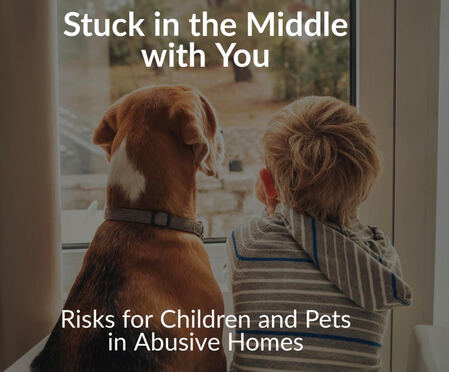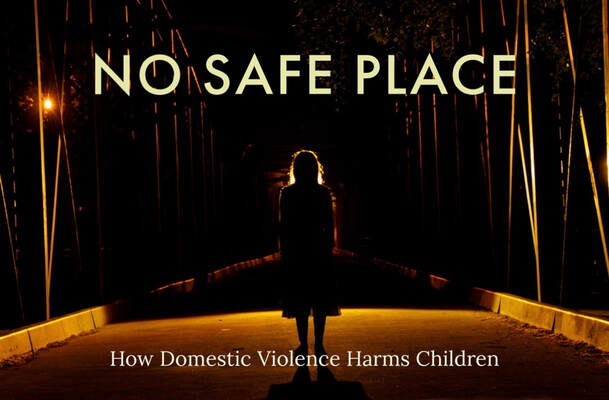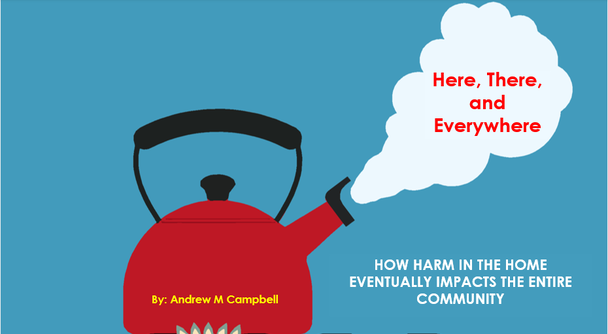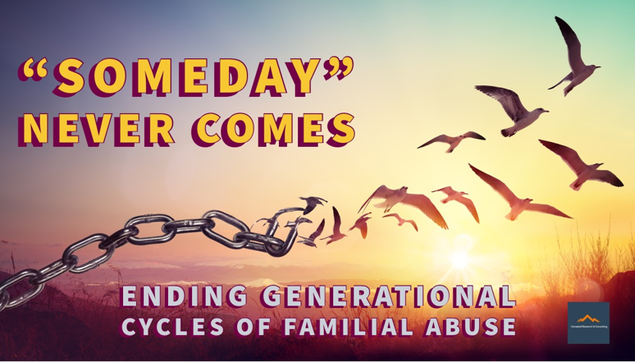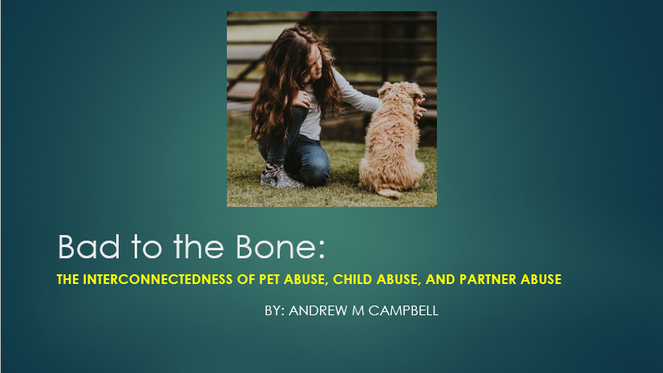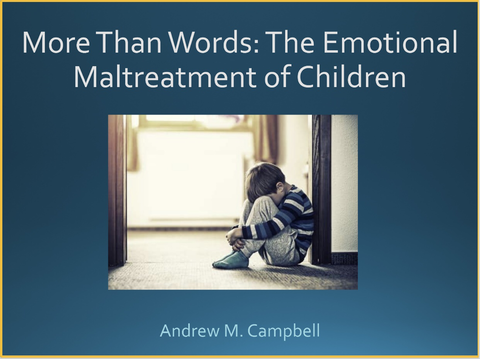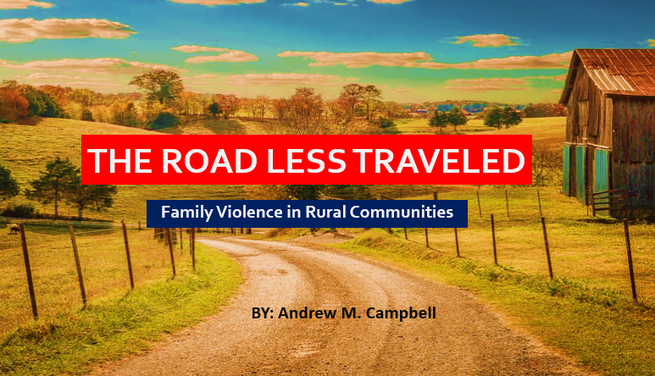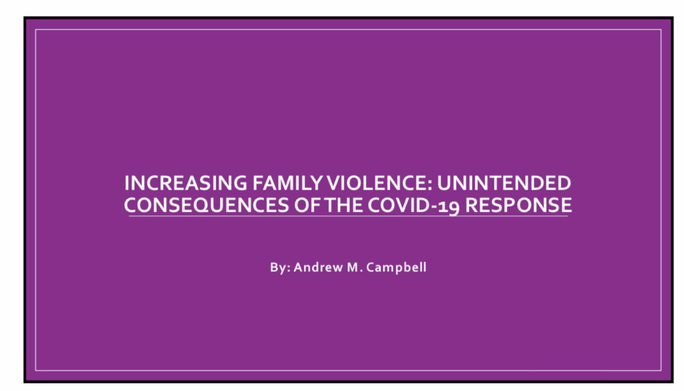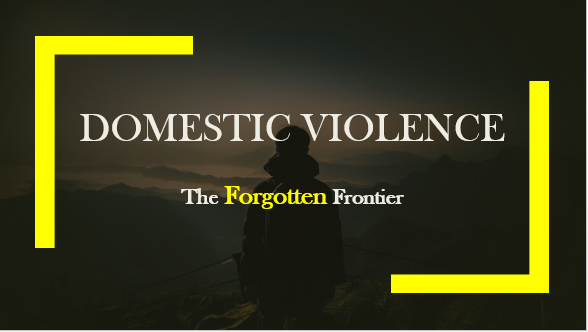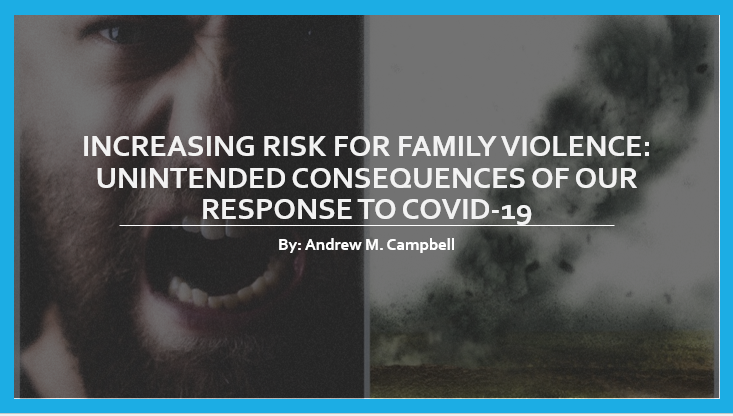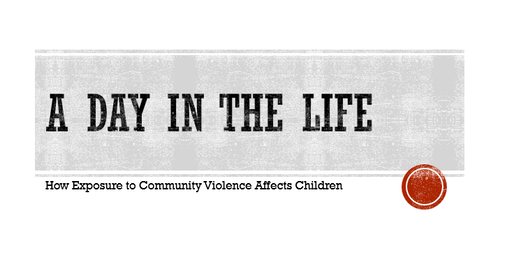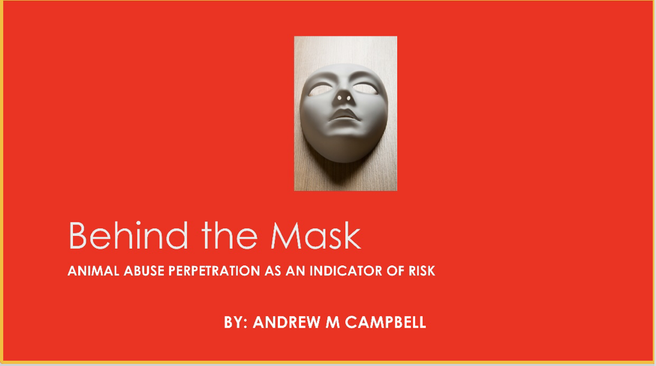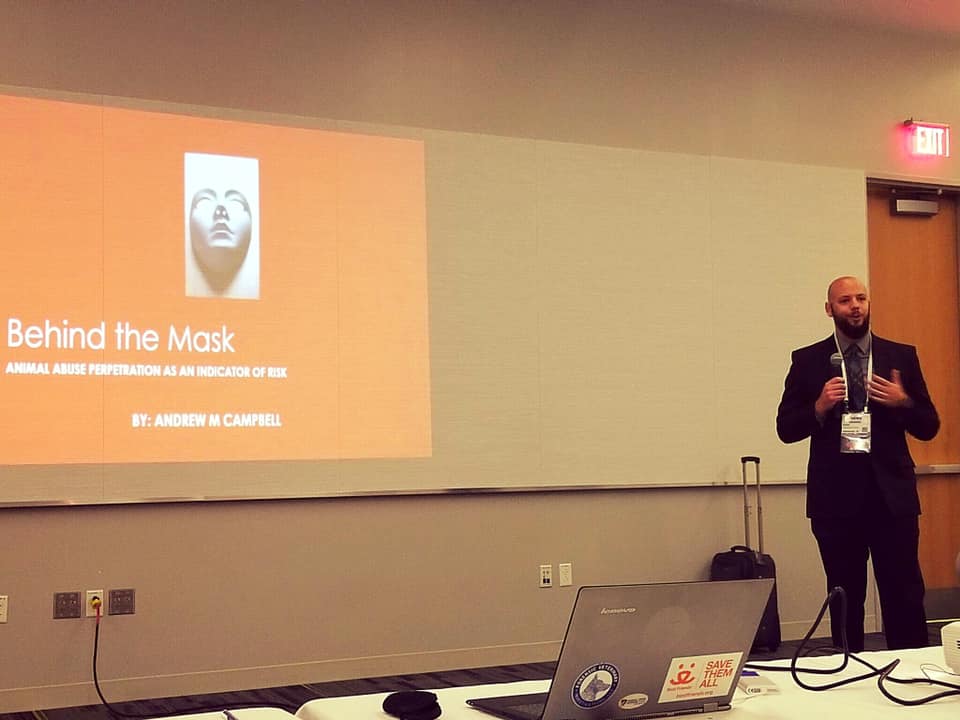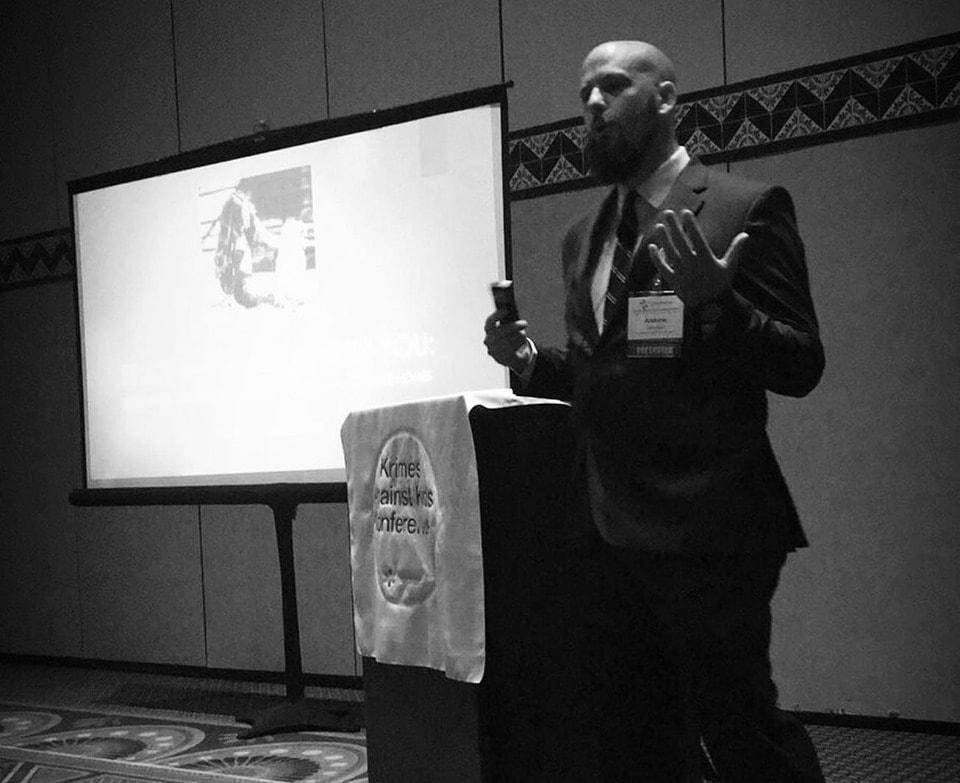Engaging sessions for all disciplines, available online and in-person.
Learn more about my full-day program entitled:
"Safe at Home: A Community-Wide Response to Violence"
Learn more about my full-day program entitled:
"Safe at Home: A Community-Wide Response to Violence"
No Safe Place: How Domestic Violence Harms Children
Children don’t just witness domestic violence, they EXPERIENCE it. Even when not the direct target of the abusive act, seeing a parent, sibling, grandparent, or pet targeted by abuse can have a significant long-term emotional and psychological impact on children. In fact, many childhood survivors of domestic violence often indicate wishing THEY had been the target of the abuse, rather than having to watch their loved ones be targeted by the abuser.
This presentation will discuss the specific threats of physical, psychological, and emotional harm for children living in a home where partner abuse/domestic violence occurs. Common misconceptions will be addressed, including the idea that a child can be too young to be affected by abuse in the home, physically observable signs of injury are an appropriate estimator of victimization, and the idea that children who do not actually see a violent act occur are not significantly harmed by it.
In addition, participants will learn of multi-disciplinary initiatives and concepts that relate to improving prevention and detection of domestic violence occurring in homes where children reside and mitigating the harmful impact of witnessing and experiencing the abuse of a loved one. Other topics to be discussed include: the various forms of child emotional maltreatment, toxic stress, child-caregiver attachment, "emotionally unavailable parents", the effects of witnessing threats or violence against animals living within the home, caregiver risk factors for domestic violence and emotional maltreatment, how to better identify victims, and what to do once victims have been identified.
Children don’t just witness domestic violence, they EXPERIENCE it. Even when not the direct target of the abusive act, seeing a parent, sibling, grandparent, or pet targeted by abuse can have a significant long-term emotional and psychological impact on children. In fact, many childhood survivors of domestic violence often indicate wishing THEY had been the target of the abuse, rather than having to watch their loved ones be targeted by the abuser.
This presentation will discuss the specific threats of physical, psychological, and emotional harm for children living in a home where partner abuse/domestic violence occurs. Common misconceptions will be addressed, including the idea that a child can be too young to be affected by abuse in the home, physically observable signs of injury are an appropriate estimator of victimization, and the idea that children who do not actually see a violent act occur are not significantly harmed by it.
In addition, participants will learn of multi-disciplinary initiatives and concepts that relate to improving prevention and detection of domestic violence occurring in homes where children reside and mitigating the harmful impact of witnessing and experiencing the abuse of a loved one. Other topics to be discussed include: the various forms of child emotional maltreatment, toxic stress, child-caregiver attachment, "emotionally unavailable parents", the effects of witnessing threats or violence against animals living within the home, caregiver risk factors for domestic violence and emotional maltreatment, how to better identify victims, and what to do once victims have been identified.
Here, There, and Everywhere: Harm Perpetrated in the Home Impacts the Entire Community
Participants will learn of the bi-directional relationship between community violence and family violence. Findings from the presenter’s review of 58 school shooting incidents occurring in the U.S. since 1990 will be discussed along with case study examples of serial killers and recent mass shooting incidents. Participants will learn of common trends in behavioral and social histories of perpetrators of mass violence including exposure to family violence and other adverse childhood experiences. Additionally, the presenter’s study of youth suicide and comparisons between teen suicide notes and school shooter journal entries will be discussed.
Participants will learn how exposure to community violence can increase risk of abuse in homes throughout the community. The many ways community violence impacts children will be highlighted, along with a discussion on how these effects often create strain on the child-caregiver bond/relationship. Reported rates of domestic violence in communities impacted by major mass violence incidents will be compared both before and after the event to further explore connections between violence in the community and abuse in the home.
Finally, participants will learn of collaborative, multi-disciplinary approaches to reducing violence/abuse in the home and community with an emphasis on child mental health and ending cycles of violence and abuse. Topics include expanding the list of adverse childhood experiences, appropriately responding to children in “emotional distress”, the relationship between harm in the home and committing acts of violence in the community, child perpetration of animal cruelty, bullying and its impact on child mental health, religion and school shooters, and preventing future acts of violence in schools.
Participants will learn of the bi-directional relationship between community violence and family violence. Findings from the presenter’s review of 58 school shooting incidents occurring in the U.S. since 1990 will be discussed along with case study examples of serial killers and recent mass shooting incidents. Participants will learn of common trends in behavioral and social histories of perpetrators of mass violence including exposure to family violence and other adverse childhood experiences. Additionally, the presenter’s study of youth suicide and comparisons between teen suicide notes and school shooter journal entries will be discussed.
Participants will learn how exposure to community violence can increase risk of abuse in homes throughout the community. The many ways community violence impacts children will be highlighted, along with a discussion on how these effects often create strain on the child-caregiver bond/relationship. Reported rates of domestic violence in communities impacted by major mass violence incidents will be compared both before and after the event to further explore connections between violence in the community and abuse in the home.
Finally, participants will learn of collaborative, multi-disciplinary approaches to reducing violence/abuse in the home and community with an emphasis on child mental health and ending cycles of violence and abuse. Topics include expanding the list of adverse childhood experiences, appropriately responding to children in “emotional distress”, the relationship between harm in the home and committing acts of violence in the community, child perpetration of animal cruelty, bullying and its impact on child mental health, religion and school shooters, and preventing future acts of violence in schools.
Ending Generational Cycles of Familial Abuse
This presentation utilizes the presenter’s personal experiences as a childhood victim of domestic violence along with his continuing research in the area of family violence. As a teen, the presenter was once told by his father, “Someday you will understand (why I do this to your mom)”. Fortunately, that day of accepting the abuse occurring in the home has never come.
This training will highlight key concepts for ending generational cycles of familial abuse, explore how concepts from initiatives to end generational cycles for other public health issues are also relevant, explain the importance of working at this issue from both directions (separate but equally effective programs for victims and perpetrators) and identify key areas of intervention for family violence professionals (law enforcement, court systems, animal welfare, education, medical, faith-based, etc.) in efforts to end abuse in the home. Ending generational cycles of familial abuse not only results in improved health outcomes for all humans and animals who currently reside in the home, but for the generations who follow as well.
This presentation utilizes the presenter’s personal experiences as a childhood victim of domestic violence along with his continuing research in the area of family violence. As a teen, the presenter was once told by his father, “Someday you will understand (why I do this to your mom)”. Fortunately, that day of accepting the abuse occurring in the home has never come.
This training will highlight key concepts for ending generational cycles of familial abuse, explore how concepts from initiatives to end generational cycles for other public health issues are also relevant, explain the importance of working at this issue from both directions (separate but equally effective programs for victims and perpetrators) and identify key areas of intervention for family violence professionals (law enforcement, court systems, animal welfare, education, medical, faith-based, etc.) in efforts to end abuse in the home. Ending generational cycles of familial abuse not only results in improved health outcomes for all humans and animals who currently reside in the home, but for the generations who follow as well.
Pregnant Partner Violence: Risks of Physical and Emotional Harm for Mother and Fetus
Homicide is now a leading case of death for pregnant women in the United States. Gaining a greater understanding of the fatal and non-fatal incidents of abuse continuing to be perpetrated against this particularly vulnerable population is critical. Domestic violence against a pregnant partner deserves its own designation and is clearly a crime against at least two (mother and fetus).
This workshop provides a unique perspective of Pregnant Partner Violence (PPV) through the utilization of law enforcement reports and observations from the scene of intimate partner violence incidents involving pregnant victims. PPV victim-suspect demographics, relationship characteristics, environment/household characteristics (including information regarding children witnessing the violence), incident outcomes, and first responder observations of suspects and victims on scene are discussed.
Additional topics include: PPV prevalence, PPV incident/environment characteristics, toxic stress, infant and maternal mortality, attachment, emotional maltreatment, child development, urban vs rural risk factors for PPV, and more effective methods for PPV prevention, screening, and intervention.
Homicide is now a leading case of death for pregnant women in the United States. Gaining a greater understanding of the fatal and non-fatal incidents of abuse continuing to be perpetrated against this particularly vulnerable population is critical. Domestic violence against a pregnant partner deserves its own designation and is clearly a crime against at least two (mother and fetus).
This workshop provides a unique perspective of Pregnant Partner Violence (PPV) through the utilization of law enforcement reports and observations from the scene of intimate partner violence incidents involving pregnant victims. PPV victim-suspect demographics, relationship characteristics, environment/household characteristics (including information regarding children witnessing the violence), incident outcomes, and first responder observations of suspects and victims on scene are discussed.
Additional topics include: PPV prevalence, PPV incident/environment characteristics, toxic stress, infant and maternal mortality, attachment, emotional maltreatment, child development, urban vs rural risk factors for PPV, and more effective methods for PPV prevention, screening, and intervention.
Bad to the Bone: The Interconnectedness of Pet Abuse, Child Abuse, and Partner Abuse
Based on the presenter’s recent publications in Social Sciences (2022), the Journal of Interpersonal Violence (2021 & 2020), Forensic Science International: Animals and Environments (2021), and book on the topic (2021), this presentation will describe the specific emotional and physical risks of harm for all children, adults, and animals residing in homes where family violence occurs. Key points of emphasis include protecting pets to best protect their humans too, improved attention to and understanding of the damaging effects of emotional abuse, and the need to expand community partnerships to include critical (often left out) organizations in the fight to end family violence.
In addition to increased risk for victims, concerns for the safety of first responders at the scene of these incidents will also be addressed. Key concepts including how DV perpetrator pet abuse may signal increased risk for police officers and others involved in cases of family violence will be explored. New data from a partnership between the presenter, child welfare agencies, and law enforcement agencies in several communities will be highlighted to provide unique perspective regarding the overlapping nature of these different forms of abuse and ways different disciplines can better support one another.
Based on the presenter’s recent publications in Social Sciences (2022), the Journal of Interpersonal Violence (2021 & 2020), Forensic Science International: Animals and Environments (2021), and book on the topic (2021), this presentation will describe the specific emotional and physical risks of harm for all children, adults, and animals residing in homes where family violence occurs. Key points of emphasis include protecting pets to best protect their humans too, improved attention to and understanding of the damaging effects of emotional abuse, and the need to expand community partnerships to include critical (often left out) organizations in the fight to end family violence.
In addition to increased risk for victims, concerns for the safety of first responders at the scene of these incidents will also be addressed. Key concepts including how DV perpetrator pet abuse may signal increased risk for police officers and others involved in cases of family violence will be explored. New data from a partnership between the presenter, child welfare agencies, and law enforcement agencies in several communities will be highlighted to provide unique perspective regarding the overlapping nature of these different forms of abuse and ways different disciplines can better support one another.
Developing a Multi-Disciplinary Perspective to Domestic Violence
This workshop provides a unique take on domestic violence prevention, identification, and intervention by enabling participants to develop a multi-disciplinary perspective of violence in the home. Results from my national domestic violence survey of victim serving agencies across multiple disciplines will be discussed. Discipline-specific (and shared) barriers to working with victims of domestic violence will be identified (legal, church, law enforcement, education staff, social services, medical, animal, dv shelter). Participants will learn of critical concepts for overcoming these barriers, developing a multi-disciplinary response, and promoting data-driven, effective and efficient community-inclusive methods to better identify and assist these victims of violence.
This workshop provides a unique take on domestic violence prevention, identification, and intervention by enabling participants to develop a multi-disciplinary perspective of violence in the home. Results from my national domestic violence survey of victim serving agencies across multiple disciplines will be discussed. Discipline-specific (and shared) barriers to working with victims of domestic violence will be identified (legal, church, law enforcement, education staff, social services, medical, animal, dv shelter). Participants will learn of critical concepts for overcoming these barriers, developing a multi-disciplinary response, and promoting data-driven, effective and efficient community-inclusive methods to better identify and assist these victims of violence.
The Emotional Maltreatment of Children
This presentation will discuss the specific threats of physical, psychological, and emotional harm for children living in a home where domestic violence occurs. Common misconceptions will be addressed, including the idea that a child can be too young to be affected by domestic violence, physically observable signs of injury are an appropriate estimator of victimization, and the idea that children who do not actually see a violent act occur are not significantly harmed by it.
Other topics to be discussed include: the various forms of child emotional maltreatment, toxic stress, child-caregiver attachment, "unavailable parenting", the effects of witnessing threats or violence against animals living within the home, caregiver risk factors for domestic violence and emotional maltreatment, how to identify victims, and what to do once victims have been identified.
This presentation will discuss the specific threats of physical, psychological, and emotional harm for children living in a home where domestic violence occurs. Common misconceptions will be addressed, including the idea that a child can be too young to be affected by domestic violence, physically observable signs of injury are an appropriate estimator of victimization, and the idea that children who do not actually see a violent act occur are not significantly harmed by it.
Other topics to be discussed include: the various forms of child emotional maltreatment, toxic stress, child-caregiver attachment, "unavailable parenting", the effects of witnessing threats or violence against animals living within the home, caregiver risk factors for domestic violence and emotional maltreatment, how to identify victims, and what to do once victims have been identified.
Family Violence in Rural Communities
This presentation will explore academic literature, family violence data, and victim accounts of family violence (Partner Abuse, Child Abuse, Elder Abuse, and Pet Abuse) occurring in rural communities. Key barriers to reporting abuse in isolated environments will be highlighted along with innovative concepts to improve prevention and detection of this abuse. Differences in reported characteristics of family violence perpetration between rural and urban environments will be described. Pregnant partner violence (PPV) and additional barriers to assistance often experienced by abused pregnant women in rural communities will be discussed.
Participants will learn of the importance of developing multi-disciplinary response teams that include faith-based organizations, animal welfare agencies, school systems, libraries, and other key community agencies in efforts to improve detection and reporting of abuse in rural communities. Key lessons learned from examining efforts to reach victims of abuse isolated with a perpetrator during Covid-19 pandemic lockdowns will be discussed to improve efforts to protect at-risk and vulnerable populations residing in isolated environments.
This presentation will explore academic literature, family violence data, and victim accounts of family violence (Partner Abuse, Child Abuse, Elder Abuse, and Pet Abuse) occurring in rural communities. Key barriers to reporting abuse in isolated environments will be highlighted along with innovative concepts to improve prevention and detection of this abuse. Differences in reported characteristics of family violence perpetration between rural and urban environments will be described. Pregnant partner violence (PPV) and additional barriers to assistance often experienced by abused pregnant women in rural communities will be discussed.
Participants will learn of the importance of developing multi-disciplinary response teams that include faith-based organizations, animal welfare agencies, school systems, libraries, and other key community agencies in efforts to improve detection and reporting of abuse in rural communities. Key lessons learned from examining efforts to reach victims of abuse isolated with a perpetrator during Covid-19 pandemic lockdowns will be discussed to improve efforts to protect at-risk and vulnerable populations residing in isolated environments.
Increasing Family Violence: Unintended Consequences of the Covid-19 Response
The national response to the Coronavirus (Covid-19), though necessary to slow the spread of the virus, dramatically increased risk of abuse perpetration in the home. Additionally, social distancing, self-quarantine measures, and the closures of schools, libraries, and churches made detection of abuse even more difficult.
This presentation provides critical insight into these issues by exploring similar increases in family violence reported after natural disasters and highlighting a collaborative community response that incorporates both human welfare and animal welfare agencies. All victim-serving agencies must be aware of the increased risk for all in these homes (especially children and pets as they often represent the most vulnerable household members) and a potential increase in reports of victimization both during and after the Covid-19 pandemic.
The national response to the Coronavirus (Covid-19), though necessary to slow the spread of the virus, dramatically increased risk of abuse perpetration in the home. Additionally, social distancing, self-quarantine measures, and the closures of schools, libraries, and churches made detection of abuse even more difficult.
This presentation provides critical insight into these issues by exploring similar increases in family violence reported after natural disasters and highlighting a collaborative community response that incorporates both human welfare and animal welfare agencies. All victim-serving agencies must be aware of the increased risk for all in these homes (especially children and pets as they often represent the most vulnerable household members) and a potential increase in reports of victimization both during and after the Covid-19 pandemic.
Domestic Violence: The Forgotten Frontier
In this presentation, we'll discuss bridging critical gaps in existing Domestic Violence literature, improving batterer intervention programs, greater access to services for children, support for caregivers victimized by violence, advancing research into “invisible” or psychological injury, perpetrator abuse of the court system, and the need to extend Family Violence Services to include pets.
In this presentation, we'll discuss bridging critical gaps in existing Domestic Violence literature, improving batterer intervention programs, greater access to services for children, support for caregivers victimized by violence, advancing research into “invisible” or psychological injury, perpetrator abuse of the court system, and the need to extend Family Violence Services to include pets.
How Disaster Outside the Home Creates Disaster Within the Home
This presentation will discuss how disasters outside the home often lead to disaster within the home. We'll review specific major past natural disasters around the globe, explore similarities and differences with the current COVID19 pandemic, and discuss how this info should guide family violence intervention now and in the future.
This presentation will discuss how disasters outside the home often lead to disaster within the home. We'll review specific major past natural disasters around the globe, explore similarities and differences with the current COVID19 pandemic, and discuss how this info should guide family violence intervention now and in the future.
Better Utilizing Places of Worship to Aid Victims of Family Violence
This presentation will focus on the need to better utilize places of worship in the fight to end family violence. Participants will learn of unique research conducted by the presenter to explore the spatial proximity of places of worship to locations of family violence incidents in the community and locations of known registered violent/sexual offenders. Taking a firm and unequivocal stand against abuse, developing inclusive support groups for victims, training staff in spotting warning signs of abuse (and what to do next), and creating an environment victims will feel safe and comfortable disclosing victimization in will all be discussed as key initiatives every place of worship must consider adopting.
How Exposure to Violence in the Community Affects Children
This presentation will describe the many risks of harm (short-term and long-term) for children exposed to violence in their community. As rates of violent crime continue to increase in many communities across the United States, child-serving professionals across all disciplines must gain greater insight into the damaging effects of exposure to these incidents, on the children who reside there. With a focus on the emotionally-damaging nature of this exposure, outcome differences by: race, gender, age, and the nature and frequency of community violence exposure will be discussed. In addition, this webinar will cover the overlap between exposure to violence in the community as a child, and risks for subsequent victimization or perpetration of violence in the home and/or community as an adolescent or adult. Finally, critical components of effective and efficient community-inclusive, multi-disciplinary intervention efforts will be described.
This presentation will describe the many risks of harm (short-term and long-term) for children exposed to violence in their community. As rates of violent crime continue to increase in many communities across the United States, child-serving professionals across all disciplines must gain greater insight into the damaging effects of exposure to these incidents, on the children who reside there. With a focus on the emotionally-damaging nature of this exposure, outcome differences by: race, gender, age, and the nature and frequency of community violence exposure will be discussed. In addition, this webinar will cover the overlap between exposure to violence in the community as a child, and risks for subsequent victimization or perpetration of violence in the home and/or community as an adolescent or adult. Finally, critical components of effective and efficient community-inclusive, multi-disciplinary intervention efforts will be described.
Animal Abuse as an Indicator of Risk for Responders, Families, and Communities
Though responding officers most commonly report domestic violence abusers who also have a history of abusing animals as apologetic, calm, or crying on scene, recently published research reveals these perpetrators often present a significant risk to families, communities, and responding officers. A unique spatial analysis of law enforcement data from several Indiana communities reveals eye-opening overlapping patterns in violence and new information regarding the links between violence against humans and violence against animals.
Though responding officers most commonly report domestic violence abusers who also have a history of abusing animals as apologetic, calm, or crying on scene, recently published research reveals these perpetrators often present a significant risk to families, communities, and responding officers. A unique spatial analysis of law enforcement data from several Indiana communities reveals eye-opening overlapping patterns in violence and new information regarding the links between violence against humans and violence against animals.
